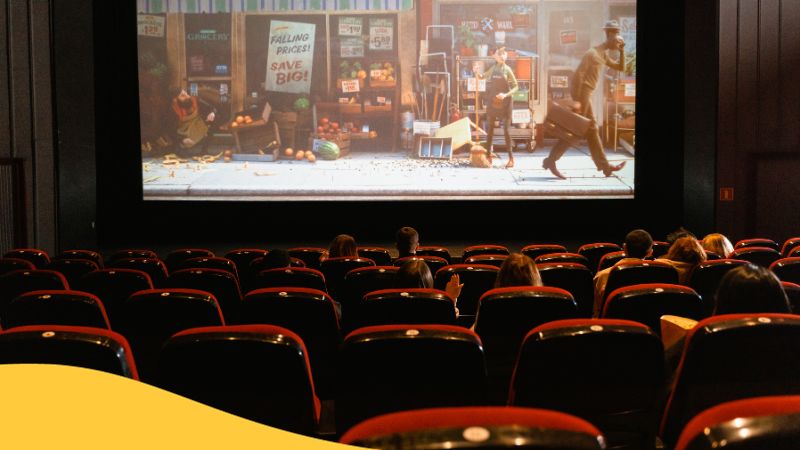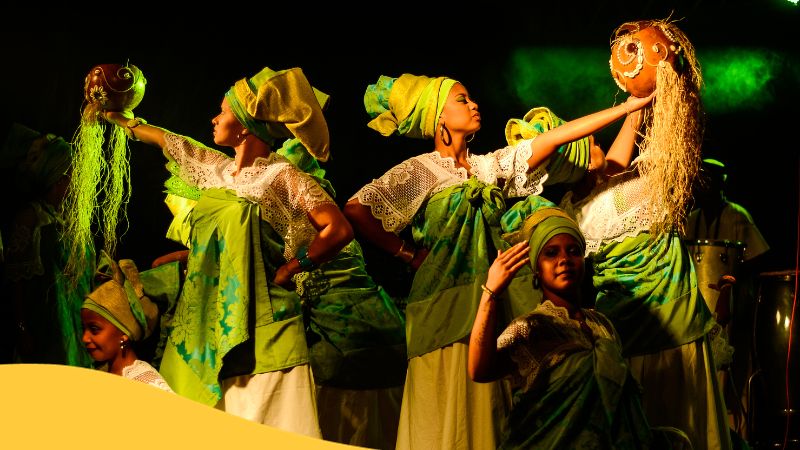Hello, language enthusiasts! In this post, we’re diving into a fundamental part of Filipino culture—Entertainment. It’s a broad category that includes music, dance, film, games, and more. By learning some Tagalog words for entertainment, you will be able to connect more deeply with Filipino culture. Ready? Let’s begin!
Whenever I visit pistahan or fiestas, I often find myself enjoying the sights in the Philippines. In my home town, Manila, every celebration is filled with entertainment, from the popular karaoke to the funny newspaper dance relay. From the way I see it, entertainment binds society, offers commentary, and fuels national pride.
What Is Entertainment In Tagalog?
In Tagalog, the term for entertainment is “libangan,” which refers to activities that provide amusement, enjoyment, or diversion from daily life and stresses. The word “libangan” comes from the root word “libang,” which means to amuse, please, or have fun. Libangan encompasses various forms of entertainment that Filipinos love, such as music, movies, television, literature, games, sports, and other leisurely pursuits.
Filipino entertainment, or “libangang Pilipino,” draws from the country’s rich history, diverse cultural influences, and unique Filipino spirit. It embodies the warmth, humor, resilience, and togetherness of its people, both in traditional and contemporary forms.
Here are some popular types of entertainment in Tagalog:
- Musika (Music) – from folk songs and traditional instruments to modern OPM (Original Pilipino Music) artists.
- Pelikula at Telebisyon (Movies and Television) – widely consumed as a pastime and an essential conversation topic among friends and relatives.
- Mga Aklat at Panitikan (Books and Literature) – showcasing literary talents in novels, poetry, and essays filled with national pride, love, and humanity.
- Laro/Palaro (Games/Sports) – diverse, engaging, and always infused with Filipinos’ endearing spirit of competition and camaraderie.
By understanding entertainment or “libangan” in Tagalog, you gain a deeper insight into how Filipinos find joy, foster unity, and navigate life together. Whether it’s a heartfelt serenade, an exciting basketball game, or a family gathered around a TV show, “libangan” remains a colorful, dynamic, and vital component of Filipino society.
Easy Tagalog Words For Entertainment
Let’s start brightening your Filipino language journey with these simple and commonly used Tagalog words related to entertainment or “libangan.” Feel free to use these words to engage in conversations with your Filipino friends or simply enjoy a Filipino movie or song.

Pelikula (Film/Movie)
“Pelikula” refers to movies or films in all their varieties – be it a love-infused romantic drama, a suspenseful action thriller, or a heart-tugging family drama. The Filipino film industry, or ‘industriya ng pelikulang Pilipino,’ has a rich history dating back to the 1890s during the Spanish colonial period with the introduction of ‘magic lantern’ shows. Today, it continues to thrive and innovate, gaining local and international recognition through festivals and award ceremonies.
Musika (Music)
“Musika” encompasses everything related to music, from traditional and folk songs (kundiman, harana) to trending Pinoy pop. The nation has birthed gifted musicians and composers across generations that have pioneered various music genres in the country. Filipinos have talents extending to musical instruments, choral ensembles, and song compositions, leading to a diverse, rich, and vibrant musical scene.
Sayaw (Dance)
“Sayaw” encapsulates a broad arena of dance forms in the Philippines. This includes traditional folk dances that tell stories of rural life, such as tinikling and cariñosa, to the urban groove of hip-hop. Dance is an integral part of Filipino culture, often used to express joy, worship, courtship, or narrative storytelling. In many Filipino festivals, or ‘fiesta,’ locals exhibit a variety of “sayaw” featuring colorful costumes and lively music, a testament to the pulsating energy and grace of Filipino identity.

Teatro (Theater)
“Teatro” signifies theatrical performances that fall under drama, comedies, musicals, pantomimes, and other live stage performances. The Filipino theater scene, or ‘eksena ng teatro,’ carries a rich tapestry of narratives spanning pre-colonial folklore, historical events, societal issues, and imaginative fictions. It is a versatile platform that has given birth to renowned playwrights, directors, and actors who put the Philippines on the global theater map.
Komedyante (Comedian)
“Komedyante” is the Tagalog term for a comedian – an individual who entertains people through humor and comedy. Komedyantes are an integral part of Filipino entertainment, known for their quick wit, impressive timing, and ability to find humor in everyday situations. They perform in various settings, such as in television shows, films, stand-up comedy shows, and even in theater productions.
Konsiyerto (Concert)
“Konsiyerto” refers to a live music performance typically featuring an artist or band. It’s a venue for musicians to showcase their talent and for audiences to experience their favorite music in a lively, immersive setting. Filipino concerts, or ‘mga konsiyerto sa Pilipinas’, spans various music genres, including Original Pilipino Music (OPM), pop, rock, and even classical.

Telebisyon (Television)
Filipino television or ‘telebisyon sa Pilipinas’ showcases a wide range of programs tailored to diverse audiences. This includes teleseryes (soap operas), game shows, news broadcasts, variety shows, educational programs, and more. It mirrors the realities, dreams, and creative narratives of the Filipino society, and also serves as a platform for exposure and recognition for many talents.
Larong-pambata (Children’s Game)
This term embodies the fun, playfulness, and learning experiences that come from engaging in kids’ games. Examples of traditional Filipino children’s games or ‘mga tradisyonal na larong pambata sa Pilipinas’ include “patintero” (a tag and blockade game), “sipa” (similar to hacky sack), and “luksong baka” (jump over the cow).
Pelikulang Animasyon (Animation)
Pelikulang animasyon refers to animated films which have gained immense popularity in recent years. Animated movies entertain both children and adults, featuring captivating storytelling, colorful visuals, and imaginative characters.
Palabas Sa tanghalan (Stage Performance)
Palabas sa tanghalan encompasses various stage performances, including theater plays, musicals, concerts, and dance recitals. It refers to any live, on-stage entertainment that captivates audiences with its talent, creativity, and artistic expression.
Over To You
With these 10 Tagalog words for entertainment, you now have a better understanding of the rich and diverse world of Filipino entertainment. From movies and music to dance, theater, and more, these words give you a glimpse into the cultural vibrancy of the Philippines. So immerse yourself in this incredible realm and explore the beauty and excitement of Tagalog entertainment.
Learn Tagalog With Ling
As we learned in this article, familiarizing yourself with these words will help you gain insights into the diverse world of Filipino film, music, dance, theater, and more. If you’re eager to continue learning Tagalog or explore other aspects of the language, I highly recommend downloading the Ling app from the App Store or Play Store. Ling offers a convenient and interactive platform to expand your Tagalog vocabulary and language skills further. Enjoy your journey into the fascinating realm of Filipino entertainment!


































































